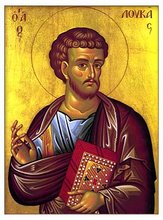by Cardinal Javier Lozano Barragan
President of the Pontifical Council for Health Care MinistryReally [an excerpt--for the full article see www.catholicculture.org/library/view.cfm?recnum=7816]
Consequently, the physician should realize that health is complexive and bodily health should not be talked about as something radically different from the complete health that we call eternal health or salvation. The physician's ministry is therefore an ecclesiastic ministry which is directed toward the salvation of man from his body, but which involves other aspects.
We thus describe health as a dynamic tension toward physical, mental, social and spiritual harmony and not just the absence of disease, which prepares men to carry out the mission with which God has entrusted them, in accordance with the stage of life at which they are.
The physician's mission is therefore to ensure that this dynamic tension toward complete harmony exists, as required at each stage of the life of this specific man who is their patient, so that they can carry out the mission with which God has entrusted them. Thus, the contradiction of reducing the medical function to the single physical and chemical aspect of the disease. This function is complete and moreover cannot be static, but rather should be inserted within the dynamism of the patients who tend toward their own harmony.
In this context, death is not a frustration for the physician, but rather a triumph, as they have accompanied their patient in such a way that they have been able to use their talents to the full at each stage of their life. When it has reached its end, the medical function ends, not with a cry of impotence, but rather with the satisfaction of a mission fulfilled, both by the patient and by the physician.
Thus, the physician truly is with Christ and their profession is identified in this communion with Christ, and then the physician joins together with our Father God like a son with his father, and their professional love becomes the action of the Love of God in himself, which is the Holy Spirit. A Christian physician is therefore one who is always guided by the Holy Spirit. From the Holy Spirit and with the Holy Spirit is all the sympathy that must exist between the physician and the patient, all the due humanization of medicine and all the demand for updating and lifelong learning, as the Love of the Holy Spirit makes the physician an essentially open person for the rest, as they are obliged to do so before God because of their profession of Faith represented by their medical profession.
[Many thanks to Rich for starting this blog. As a Catholic family physician it's great to have such a forum. I am posting this excerpt from an article I ran across recently. Cardinal Barragan's comments are very challenging and inspiring. He reminds me that we can only pursue this vocation, and vocation it is, with Christ. Would that I were more consistent and faithful in walking "with Him" into the exam room and the hospital bedside! I would welcome your comments/feedback.]


